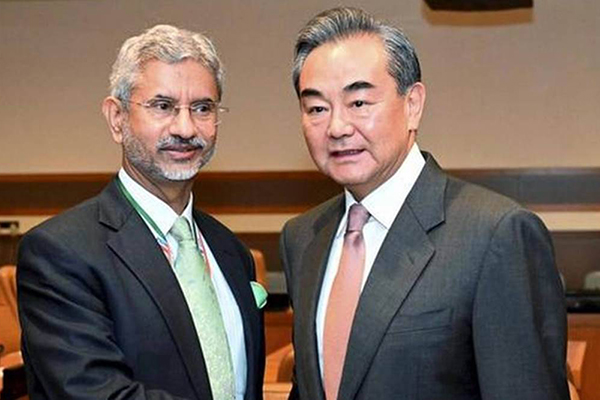In his first comments after the latest round of talks between Indian and Chinese military commanders, Chinese Foreign Minister Wang Yi said, on 25 December, that China is ready to work with India for the “steady and sound growth” of bilateral ties and the two countries are committed to upholding stability at the border areas.
His comments come days after Indian and Chinese military commanders held a fresh round of talks on December 20 to resolve the remaining issues along the Line of Actual Control (LAC) in eastern Ladakh – the first high-level talks after troops of the two sides clashed in Tawang sector of Arunachal Pradesh on December 9.
Addressing a symposium on the international situation and China’s foreign relations in 2022, Wang said: “China and India have maintained communication through the diplomatic and military-to-military channels, and both countries are committed to upholding stability in the border areas… We stand ready to work with India in the direction toward steady and sound growth of China-India relations.”
Wang, along with National Security Advisor Ajit Doval, is the Special Representative of the India-China boundary mechanism which has remained dormant in the current standoff.
India and China have held 17 rounds of talks so far to resolve the standoff. A joint statement issued last Thursday after the 17th round, said the talks were “frank and in-depth” and “in line with the guidance provided by the leaders of the two countries to work for the resolution of the remaining issues at the earliest”.
“In the interim, the two sides agreed to maintain the security and stability on the ground in the Western sector,” it said, referring to the eastern Ladakh region.
In September, Indian and Chinese troops disengaged in the Gogra-Hot Spring area, the last of the acknowledged “friction points” that were discussed over 16 rounds of Corps Commander level talks that began in June 2020, after Chinese incursions at several points weeks earlier.
Tensions in Ladakh continue over the presence of Chinese troops in Depsang, intrusions in Demchok and the rapid Chinese infrastructure build-up, including two bridges over Pangong Tso that will reduce Chinese mobilisation time on the lake’s southern bank.
Indian and Chinese troops clashed in Arunachal Pradesh’s Tawang sector in the early hours of December 9, assaulting each other with sticks and canes in their closest encounter since the deadly Galwan incident in eastern Ladakh in June 2020.
Asked whether the incident in Arunachal Pradesh was raised during the talks, the MEA spokesperson had refrained from giving a direct response. “We can all speculate but since I don’t have a confirmation, I am not going to be able to confirm that. We did talk about, to be honest, the Western sector. So if it has not been raised, I wouldn’t be surprised. Let me not make a comment either,” he had said.
“We have been emphasising that our soldiers will stand firm to guard our frontiers. So I don’t want to say anything beyond that,” he had said.
In his lengthy address on China’s diplomatic work, Wang, who was elevated to the ruling Communist Party of China’s (CPC) political bureau during the recent party Congress, focused more on China’s troubled ties with the US and burgeoning relations with Russia, despite the Ukraine war.
“We have deepened good-neighbourliness, friendship and cooperation with Russia, and made China-Russia comprehensive strategic partnership of coordination more mature and resilient,” Wang said. “Over the past year, China and Russia have firmly supported each other in upholding respective core interests, and our political and strategic mutual trust has been further consolidated,” he said.
Wang also spoke about China’s opposition to “bloc confrontation”. Beijing has always opposed the Quad grouping comprising the US, India, Australia and Japan, as well as the AUKUS alliance of the US, Australia, and the UK.
“We have continued to reject bloc confrontation and zero-sum competition, and maintained strategic stability in relations with other major countries,” Wang said.
He said the BRICS countries (Brazil, Russia, India, China, and South Africa) have projected a resounding voice for global equity and justice, and injected strong impetus into global economic recovery and development.
Wang also briefly touched on China’s ties with Pakistan, saying the two countries have “continued to firmly support each other, uphold the invaluable all-weather strategic partnership, and consolidate the iron-clad friendship”.

















